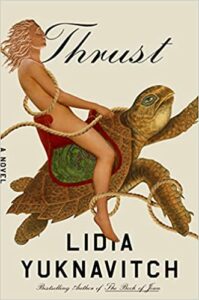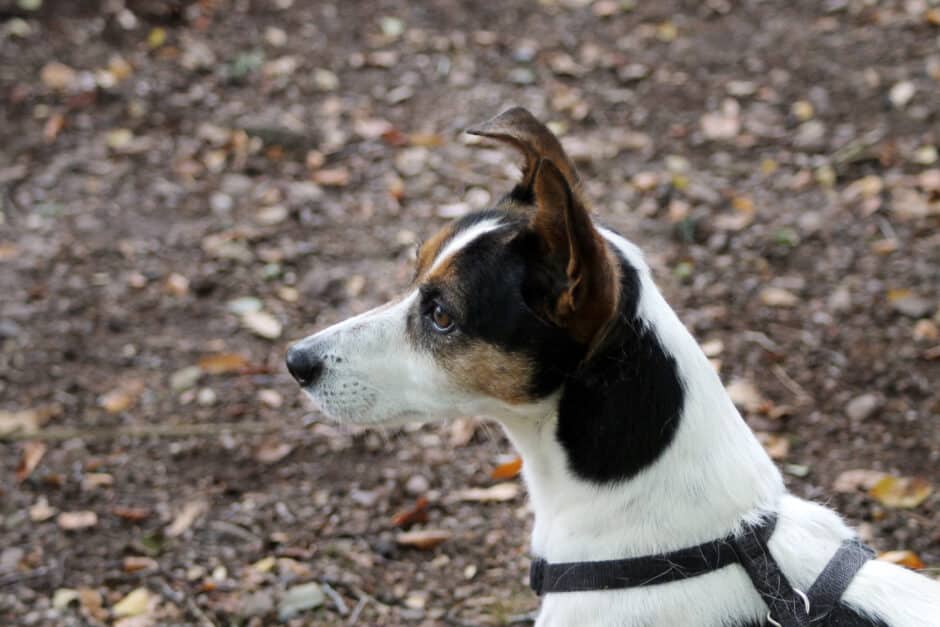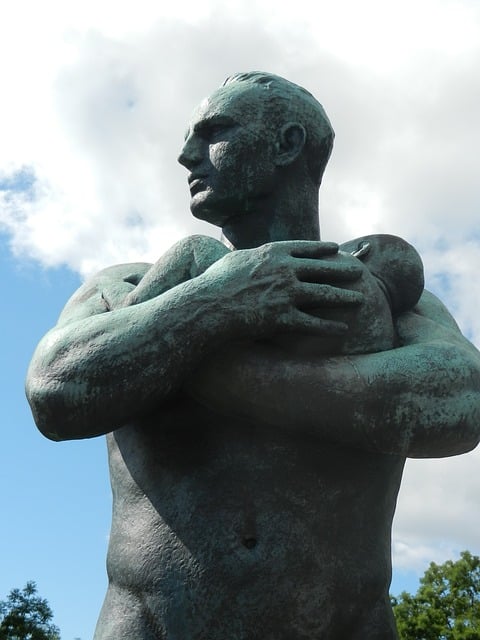My husband usually does the first walk, standing at the door, holding out the leash and grumbling, ‘Ready to walk, Dummy?” Dummy is Rocky and he takes no offense because my husband doesn’t mean any. He loves the furry beast and the fresh air, but this morning the job is mine because my husband has gone off with our three teenaged boys rafting down the Delaware river. I bowed out of the adventure – an activity we did once before when the kids were younger, and the memory of sunburned, miserable wailing along with the impulse to hit my husband with a paddle still haunts. Instead, I stay behind to hang with my cousin who is battling cancer, an entirely different kind of nightmare.
It’s hazy and overcast, the damp of last night’s rain still clings to all the green underfoot and around me. Rocky likes it, considers it a fresh morning salad and we stop every few feet for him to sniff, piss or chew. Typically, I distract myself on these walks with texts, phone calls or even an episode of the latest Netflix show I am obsessed with (Offspring!). With my weak ankles and uneven sidewalks, it’s a middle-aged mom’s rebellious walk on the wild side, but today my phone rests in my pocket. I want to notice the ripe green of the landscape, the peeking sun warming my skin, the orange and black butterfly dancing along a neighbor’s bursting landscaping.
I left my cousin back at Sloan yesterday for yet another complication related to her cancer. It seemed like only a minute ago that her life was full. Overfull. She worked hard when it was work time and played hard when it was playtime with no time or interest in stopping and smelling the roses, or in my case now, the daisies. She is in a bed, where she has mostly laid for months now. Her life no longer her own; at the mercy of her disease and the doctors who (kind of) care for her.
She is emaciated. I run to Carvel to bring her favorite thick shakes or some special treat that she desperately wants to eat. Watching her struggle to finish three bites of anything before the food overwhelms her bloated, distended stomach or makes her nauseous is heartbreaking, somehow making me linger and savor my nightly ice cream sundae but with a guilt that has nothing to do with calories.
The walk is relaxing me, except when Rocky spies a bunny and almost pulls my arm from its socket. “Rocky!” I yell, holding the leash forcefully. “No Bunnies!” His soulful eyes look up to me in remorse, but it is more likely for a consolation for his lost bunny. Sighing, I toss him a treat. Our walk resumes and I go back to focusing on the neighborhood homes and the blooming flowers and not on my cousin who hasn’t had the strength to walk her neighborhood in months. Not that she liked to walk her neighborhood, but that is beside the point.
My cell rings. It’s my youngest son secretly calling from the car to report that he does not want to go rafting, although I already know this. “You are going to have fun,” I reply brightly, even as the memory of his wet and terrified five-year-old face flashes in my brain. “And I’ll have a special treat waiting for you when you come home.”
“Yay, mama!” he says and my heart expands and breaks. He is now thirteen. My cousin’s daughter is only eight.
I turn the corner and pass ribbons of blue and orange roped around the trees. They appeared a couple of months ago in memory of three young lives (two of them brothers) taken the next town over when a car crossed a divider and crashed into them head on. I have thought obsessively about them and their families, and the randomness of a tragedy too much to bear.
It’s everywhere. This suffering. Mixed in with the underappreciated joyful mundane. A typical dog walk. Flowers bursting all around. My friend’s voice on the other side of my cell, relaying a story that has us both cracking up. Gifts beyond measure.
At home, I fill my cup with dark, rich coffee and sip leisurely. Not too long ago, my cousin loved her extra large coffee, light and sweet, but cancer has stolen that pleasure as well, changing her taste buds, giving her reflux and basically making many of her beloved foods and drinks abhorrent to her. I look down at my cup in disgust. How can I enjoy when she cannot?
Sighing, I take another sip. What good will denying myself do for my cousin? Doctors can’t seem to do anything for her? Being a good person hasn’t made a difference. It’s just coffee, I argue. Just like it was just a dog walk. But really, they are what make up a life. The simple pleasures. The stuff we take for granted is of course what matters most.
I will see her in a couple of hours. Sit on the floor by her bed and entertain her with meaningless stories that hopefully bring a small smile and distraction. I will offer her food and treats that she might take a bite or two of before her stomach decides it can tolerate no more. We will talk about the Netflix show I encouraged her to watch (Offspring!) and escape into that world for a while. I will listen to her fear and worry and do my best to soothe. I’ve been told it’s not my strong point. My own worry has a way of leaking into my face, but I am practicing in front of a mirror just like her best friend instructed.
There are no answers, small comforts, and a lot of pain for the sick and suffering. Life loses all its flavor and sparkle as loved ones watch helplessly. Angrily. Miserably. But with no choice in the matter, we must keep going. Listen closely. Hug tightly. Laugh freely. And love fiercely.
While my boys traverse the waves, riding the choppy and the serene, I continue to sip my coffee and think about my cousin as the more turbulent waters rush all around.
Alisa Schindler is a mom of three boys and wife to Mr. Baseball. She schleps children, burns cupcakes and writes essays that have been featured online at the New York Times, Washington Post, Kveller, Good Housekeeping and Northwell Health’s The Well, among others. In her spare time, she writes sexy, twisty fiction novels. Find out more about her at alisaschindler.com.
***
Have you pre-ordered Thrust?

“Blistering and visionary . . . This is the author’s best yet.” —Publishers Weekly (starred review)
***




